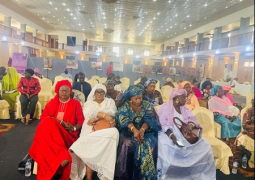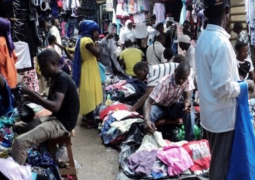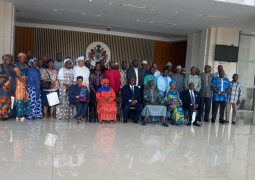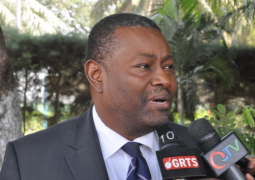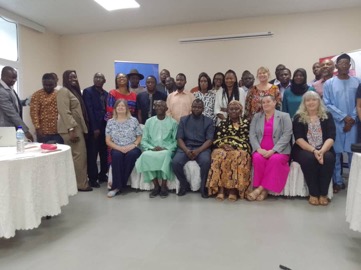
It would be recalled that MCA-G with support from MCC is implementing a US$ 25M threshold programme, which aims to enhance the governance and operations of the power sector by instituting reforms that drive accountability and transparency.
In recent years, gender equality and social inclusion has attracted attention with the aim of empowering the excluded and vulnerable groups as a way of contributing to the economic growth and social wellbeing.
Welcoming the gathering, Saffie Dambelleh, Chief Executive Officer (CEO), MCA-Gambia, reminded that as a member country of the UN, both the Gambia and United States are committed to the Sustainable Development Goals and in particular the gender equality and social inclusion.
“It is therefore by no means a default that the United Nations outlined gender equality and social inclusion in its Sustainable Development Goals in order to bridge the gap in inequalities and social exclusion for economic growth and poverty reduction.”
To that end, he revealed that the two countries signed a US$25 million Threshold Programme Grant Agreement that seeks to address the binding constraints by embarking on reforms in the energy sector.
CEO Dambelleh acknowledged that the implementation of the programme involves gender and social integration, adding that already MCA Gambia with support from MCC developed the Social and Gender Integration Plan (SGIP), which will serve as a reference document for implementing entities; constraints and consultants in monitoring gender and social inclusion objectives.
Deputising for the Ambassador of the United States in The Gambia, Rebbeca Taylor, chief political and economic officer at the embassy, acknowledged the crucial role US government places on ensuring that women, youth and marginalised population directly participate in and benefit from this US$25M grant to strengthen the energy sector.
She informed that since the start of the Threshold Programme in January 2024, they have already begun an iterative, problem-driven to identifying the constraints and issues in the governance and operational functions of the energy sector in the country.
Fatou Kinteh, minister for Gender, Children and Social Welfare disclosed that the threshold aims to tackle the pressing challenges posed by unreliable and inadequate electricity supply in The Gambia.
“As we all know, power outages have significant implications for our households. This programme is strategically designed to complement government’s ongoing investments in addressing energy sector challenges.”
To that end, she commended the MCC for what she called ‘registering a good track record’ of gender-sensitive energy governance and operations through this valuable SGIP document.
She equally lauded the MCC on receiving the US$25 grant threshold programme, focused on improving power sector governance and operations in The Gambia.
She revealed that gender mainstreaming and social inclusion in the energy sector is a key priority in the Social and Gender Integration Plan (SGIP).
That approach, she added, implies the important role that MCC leaderships places on women socio economic development.
Minister Kinteh reminded that since gender equality and women empowerment is central in the SGIP Threshold Programme, it would identify, monitor and form the basis for the application of the Gender and Social Inclusion Action Plan.
“Furthermore, the SGIP contains social and gender analysis, which is critical in providing contextual information on the critical laws, policies, social and gender issues in The Gambia, but most importantly the status of women and the marginalized and low-income people.”
To that end, she made reference to women in Science, Technology and Mathematics also referred to as STEM.
“I am indeed very optimistic that this valuable grant on improving power sector governance and operations will in the long run enhance the presence of women and girls in the energy sector.”


